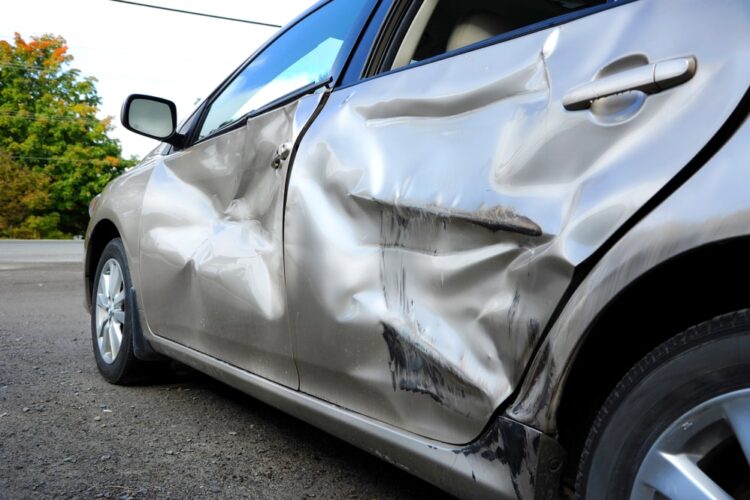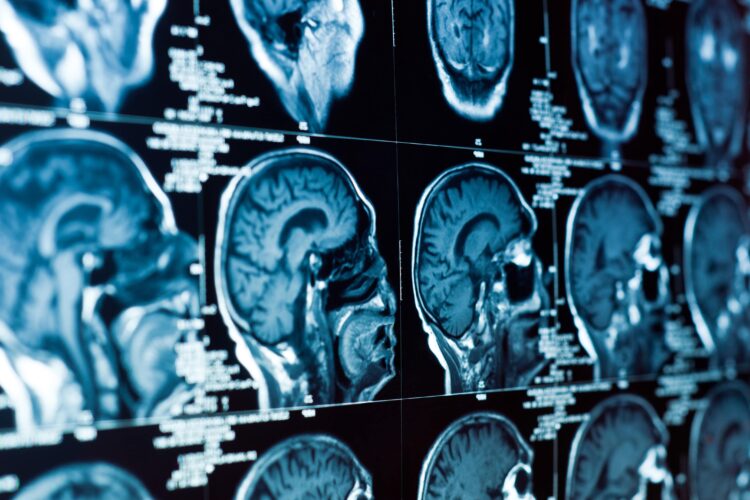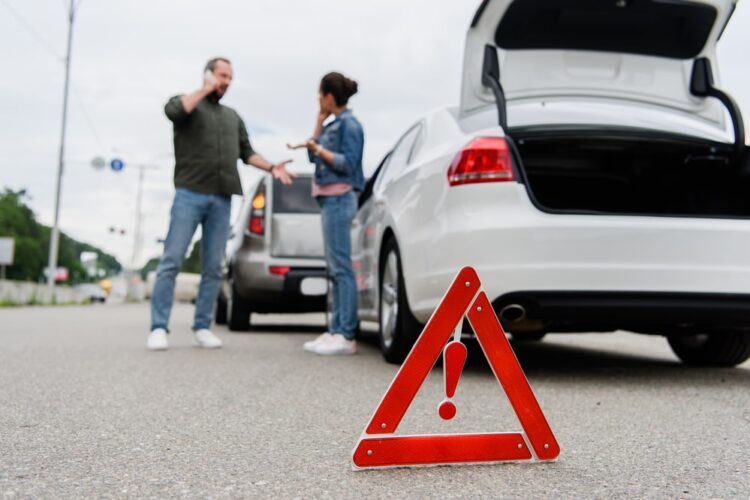June 11, 2025
Injuries That Occur On Construction Sites
Construction sites are among the most dangerous workplaces in the country. Workers face daily exposure to heavy equipment, elevated platforms, and unpredictable environments. While safety practices have improved, serious injuries still happen far too often. If you suffered one of the below injuries or another injury on a construction site, you may be eligible for compensation.
Falls From Ladders And Scaffolding
Attorneys such as our friends at Pavlack Law, LLC know that falls remain one of the leading causes of injuries on construction sites. Workers performing tasks at height are at risk of falling from scaffolding, ladders, rooftops, and other elevated surfaces. These incidents can lead to broken bones, head trauma, and in some cases, permanent disability. Inadequate guardrails or unsecured ladders are often contributing factors.
Electrocution Injuries
Contact with exposed wiring, overhead power lines, or faulty electrical tools can result in electrical burns or fatal shocks. Electricians, general laborers, and anyone working around unfinished electrical systems face these hazards regularly. These incidents can lead to heart complications, nerve damage, or severe burns requiring long-term care.
Struck-By Accidents
Falling tools, moving vehicles, or dropped materials can cause serious injuries when a worker is struck unexpectedly. These injuries range from mild bruising to severe trauma, including skull fractures or internal injuries. Proper use of hard hats and secure storage of tools can reduce the frequency of these incidents, but risks remain high in fast-paced work zones. A construction site injury lawyer knows that even if the proper precautions are taken, injuries may still occur, and victims can still file for compensation.
Caught-In Or Caught-Between Injuries
Construction work often involves large machinery, trenches, and moving parts. When a worker becomes trapped between objects or caught in equipment, the injuries can be devastating. Crushed limbs, broken bones, and even amputations can result from these accidents. These cases often involve faulty machinery or lack of adequate machine guarding.
Repetitive Motion Injuries
Construction jobs that require frequent lifting, twisting, or tool use can lead to repetitive stress injuries over time. Conditions such as tendonitis, carpal tunnel syndrome, or back strain may not happen suddenly but can have long-term effects on a worker’s ability to stay on the job. These cases often go overlooked until the pain becomes debilitating. Pursuing a claim early on can help you receive the treatment and benefits that you deserve.
Burns And Chemical Exposure
Welders, painters, and workers dealing with hazardous materials can suffer chemical burns, respiratory issues, or skin irritation. Accidental fires or improper handling of flammable materials can lead to thermal burns. These injuries may require hospitalization or long-term treatment depending on severity.
Death
Unfortunately, fatal incidents still occur too frequently on construction sites. Whether due to falls, crushing injuries, electrocution, or other serious hazards, the loss of life in a workplace accident affects families deeply. Wrongful death claims can help provide financial support to loved ones left behind and hold responsible parties accountable.
Contact An Attorney Today
An experienced attorney can attest to how devastating construction site injuries can be—not just physically, but financially and emotionally. If you or someone close to you has been hurt while working, speaking with a lawyer is an important step. Legal support can help clarify your rights and explore available compensation options.
January 7, 2025
How Much Is Your Bicycle Accident Claim Worth?
A bicycle accident can turn your life upside down, leaving you with injuries, financial challenges, and a long road to recovery. If you’re dealing with the aftermath of a crash, you might wonder how much your claim is worth and what factors determine its value. Attorneys discuss how legal professionals approach these cases to help victims secure the compensation they deserve. If you’ve been searching for guidance, this article will walk you through the key factors that influence a bicycle accident claim.
Medical Costs And Future Care
Medical bills are often one of the largest components of a claim. Immediate expenses like emergency room visits, surgeries, or rehabilitation add up quickly. However, it’s not just about what you’ve already paid; future medical needs must also be considered. For example, if your injuries require ongoing physical therapy or future surgeries, those costs should be accounted for in your claim.
A common challenge for victims is estimating the long-term expenses related to their injuries. This is where experienced bicycle accident lawyer can be invaluable. They work with medical professionals to project future costs, ensuring that your claim reflects the full scope of your medical needs.
Loss Of Income
For many of us, a bicycle accident disrupts not only our health but also our ability to work. Time off for recovery can lead to lost wages, and in severe cases, injuries might limit your earning potential in the future. Your claim should include these financial losses, both past and future.
Imagine a cyclist who works in a physically demanding job but suffers a back injury that prevents them from returning to their previous role. Their lawyer would calculate not just the wages lost during recovery but also the diminished earning capacity caused by the injury. These losses can have a lasting impact, making it critical to address them thoroughly.
Pain And Emotional Distress
While financial losses are straightforward to calculate, the emotional toll of a bicycle accident can be just as significant. Pain, suffering, and the impact on your quality of life are real and deserve recognition in your claim. For example, if your injuries prevent you from participating in activities you once loved, that loss matters.
These non-economic damages can be harder to quantify, but they play a critical role in the overall value of your claim. Attorneys often draw on past cases and professional evaluations to present a compelling case for compensation for pain and suffering, if applicable.
Damage To Your Bicycle And Other Property
In addition to personal injuries, the accident may have damaged your bicycle, helmet, or other gear. Replacing or repairing this equipment can be costly, and these expenses should be included in your claim. While property damage might seem secondary to medical costs, it’s an important part of recovering what you’ve lost.
Accountability For The Responsible Party
One of the most important aspects of a claim is holding the responsible party accountable. Whether it’s a negligent driver, a hazardous road condition, or another factor, identifying liability strengthens your case. This accountability not only supports your financial recovery but also helps prevent similar incidents from happening to others.
Advocating For Fair Compensation
Legal representation makes a significant difference in these cases. Lawyers who handle bicycle accident claims understand the tactics used by insurance companies to minimize payouts. They know how to present evidence, calculate damages, and negotiate effectively.
For example, an insurance company might try to argue that a cyclist’s injuries are less severe than claimed. A skilled attorney counters this by providing thorough medical records, witness statements, and expert opinions, leaving no room for doubt.
Recovering from a bicycle accident is about more than just physical healing; it’s about reclaiming your life and financial stability. By understanding the factors that shape your claim’s value, you’re better prepared to take the next step. Partnering with a knowledgeable legal team allows you to focus on your recovery while they handle the challenges of building your case.
When you’re ready to move forward, know that support is available to help you seek the compensation you deserve. A trusted advocate can make all the difference in finding a path to a better future.
November 30, 2024
How A Car Accident Lawyer Can Help Your Case
If you’ve been injured in a car accident, hiring a Falls Church, VA car accident lawyer can be one of the most important decisions you make to protect your rights and secure fair compensation. While it may seem tempting to handle the case on your own or accept a quick settlement from the insurance company, there are several key reasons why having a lawyer by your side can significantly benefit your case. Call the Law Offices of Ryan Quinn, PLLC for details.
Expert Knowledge Of The Law
Car accident cases often involve complex legal issues, including determining fault, navigating insurance claims, and understanding the applicable laws. A car accident lawyer is well-versed in these laws and understands how to apply them to your case. They can explain your rights, help you understand the legal process, and ensure that you are making informed decisions every step of the way. If your case involves serious injury or significant property damage, a lawyer’s expertise is invaluable for handling the nuances of your claim.
Investigation And Evidence Gathering
A successful car accident claim relies heavily on evidence. To prove liability and secure compensation, your lawyer will investigate the accident and gather the necessary evidence. This may include:
- Police reports
- Witness statements
- Medical records
- Accident scene photographs
- Expert testimonies (e.g., accident reconstruction specialists)
Without an experienced lawyer, you may not know what evidence is critical to your case or how to properly collect and preserve it. A lawyer can ensure that all relevant evidence is gathered and that no important details are overlooked, which can significantly strengthen your claim.
Dealing With Insurance Companies
One of the most significant challenges in a car accident case is dealing with insurance companies. Insurance companies, even your own, often prioritize minimizing payouts and may offer you less than you deserve. They may use tactics to delay, deny, or reduce your claim. Insurance adjusters may attempt to undermine your case by questioning your injuries or suggesting that you were partially or fully at fault for the accident.
A car accident lawyer has experience negotiating with insurance companies and understands their tactics. They will handle all communication with the insurer on your behalf, ensuring that you are not taken advantage of and that your best interests are protected. Your lawyer will fight for a fair settlement that adequately compensates you for medical expenses, lost wages, pain and suffering, and other damages.
Maximizing Your Compensation
Car accident lawyers know how to accurately calculate the total value of your claim, which may include economic and non-economic damages. Economic damages cover medical bills, lost wages, and property damage, while non-economic damages include pain and suffering, emotional distress, and loss of quality of life. Lawyers also know how to account for future medical expenses or ongoing treatments that may arise as a result of the accident.
Without legal expertise, you may underestimate the long-term costs associated with your injuries, potentially leading you to settle for less than you are entitled to. A lawyer will ensure that you are fully compensated for both your immediate and future needs.
Representing You In Court
In some cases, insurance companies may not offer a fair settlement, or liability may be disputed. If negotiations fail, your lawyer can take your case to court. Having a lawyer represent you in court is crucial, as they will have the experience to present a compelling case, cross-examine witnesses, and argue for the best possible outcome.
The thought of going to trial can be intimidating, but a skilled car accident lawyer will guide you through the process and fight on your behalf. They will use their legal knowledge and experience to advocate for your rights and ensure that you receive the compensation you deserve.
Contingency Fee Basis
Many car accident lawyers work on a contingency fee basis, meaning they only get paid if you win your case or receive a settlement. This arrangement allows you to access legal representation without worrying about upfront costs. The lawyer’s fee is typically a percentage of the settlement or award you receive. Since the lawyer’s payment depends on the success of your case, they are highly motivated to secure the best possible outcome for you.
Focus On Your Recovery
After a car accident, your primary concern should be your health and recovery. Handling a legal case while dealing with physical injuries, emotional distress, and medical treatments can be overwhelming. By hiring a car accident lawyer, you can focus on healing while your lawyer takes care of the legal aspects. This reduces your stress and ensures that your case is handled efficiently.
Contact Our Law Firm For Legal Help
If you’ve been involved in a car accident, consulting with a car accident lawyer will give you the best opportunity to secure the compensation you deserve and protect your future. Call the Law Offices of Ryan Quinn, PLLC to schedule a free case evaluation and find out how we can help get you the compensation you deserve.
November 29, 2024
What Financial Compensation Can You Collect In A Car Accident Case?
When you are involved in a car accident, you may be entitled to compensation for the damages you incur as a result of the crash. Damages are classified into four general categories: economic damages, non-economic damages, punitive damages, and property damages. Each category is designed to compensate you for different aspects of the harm caused by the accident. A Northern Virginia car accident lawyer can evaluate your case and determine what you may be entitled to for the losses you have suffered. Call Northern Virginia car accident lawyer to learn more.
Economic Damages
Economic damages are intended to reimburse you for the financial losses you have suffered as a result of the accident. These damages are tangible and can be easily calculated based on your actual expenses. Economic damages typically include:
- Medical Expenses: This includes all medical costs related to the treatment of injuries caused by the accident, such as hospital bills, surgery costs, physical therapy, medication, and rehabilitation. Future medical expenses that you may incur as a result of the injury are also included in this category.
- Lost Wages: If your injuries prevent you from working, you are entitled to compensation for the income you have lost as a result. This includes wages, bonuses, or commissions that you were unable to earn due to the accident. If your injuries result in permanent disability that affects your ability to work in the future, you may also pursue compensation for lost earning capacity.
- Other Financial Losses: This can include out-of-pocket expenses related to the accident, such as transportation costs for medical appointments, home care services, or modifications to your home to accommodate a disability. Any additional financial burdens caused by the accident may be reimbursed as part of economic damages.
Non-Economic Damages
Non-economic damages are meant to compensate you for the emotional and physical suffering caused by the accident. These damages are more subjective and harder to quantify than economic damages, but they are just as important in ensuring that the victim is fairly compensated. Non-economic damages can include:
- Pain and Suffering: This includes both the physical pain and the emotional distress you experience as a result of your injuries. It can encompass chronic pain, the need for ongoing medical treatments, or the long-term physical limitations caused by the injury. Additionally, if your injuries prevent you from engaging in activities you once enjoyed, this loss of enjoyment of life may also be included in pain and suffering.
- Emotional Distress: Car accidents can cause significant psychological effects, including anxiety, depression, and post-traumatic stress disorder (PTSD). Non-economic damages compensate you for the mental and emotional toll the accident has taken on your life.
- Loss of Consortium: If your relationship with your spouse or family member has been affected by the injuries caused by the car accident, you may be entitled to compensation for loss of consortium. This covers the loss of companionship, affection, and support due to the victim’s injuries.
Punitive Damages
Punitive damages are not awarded in every case but can be pursued when the defendant’s behavior was particularly reckless or malicious. These damages are designed to punish the wrongdoer and deter others from engaging in similar behavior in the future. Punitive damages are not based on the victim’s losses but instead focus on the defendant’s conduct. Common scenarios where punitive damages might be awarded include:
- Driving Under the Influence (DUI): If the at-fault driver was intoxicated or under the influence of drugs when the accident occurred, the court may award punitive damages to penalize this reckless behavior.
- Intentional Harm or Gross Negligence: If the driver acted with gross negligence or intentional harm (e.g., road rage or deliberately causing a crash), punitive damages may be appropriate.
Punitive damages are typically awarded in addition to economic and non-economic damages, but they are generally capped in many states.
Have You Been Injured?
If you have been involved in a car accident, consulting with an experienced car accident lawyer can help ensure that all types of damages are properly considered and pursued in your case. With the right legal representation, you can maximize your compensation and receive the financial support you need to recover. Call the Law Offices of Ryan Quinn, PLLC to schedule a free consultation and find out how we can help.
July 31, 2024
Serious Injury Claims And Compensations
Compensation For Serious Injury Claims
In the aftermath of a serious injury, the path to recovery can be long and challenging. In addition to the physical and emotional toll, the financial burden can be overwhelming. Understanding the types of compensation available for serious injury claims can help you better manage your expectations and seek the full extent of compensation that you deserve. For assistance with your serious injury case, contact a serious injury lawyer today.
Medical Expenses
One of the most immediate and significant costs after a serious injury is medical expenses. This includes hospital stays, surgeries, doctor visits, prescription medications, physical therapy, and any necessary medical equipment. Compensation can cover both past and future medical expenses, ensuring you receive the ongoing care you need for recovery. It is important to ensure that the full extent of your injuries and expenses are documented so that you can recover the compensation that you need.
Lost Wages
Serious injuries often result in missed work, leading to a loss of income. You can seek compensation for lost wages during your recovery period. This not only includes the time you’ve already missed but also any future earnings you might lose if your injury affects your ability to work.
Pain And Suffering
Compensation for pain and suffering goes beyond the tangible costs and addresses the emotional and physical distress caused by the injury. This type of compensation is more subjective and can vary widely depending on the severity of the injury and its impact on your daily life. An experienced lawyer can help you quantify this aspect of your claim effectively.
Rehabilitation And Therapy
Rehabilitation and therapy are often necessary for recovery, especially for severe injuries. This can include physical therapy, occupational therapy, and counseling.
Attorneys such as our friends at DuBose Law Firm, PLLC always emphasize the importance of seeking compensation for rehabilitation and therapy, as it helps ensure that you have access to the services needed to regain as much functionality and quality of life as possible.
Property Damage
If your injury occurred in an accident that also caused damage to your personal property, such as a vehicle, you could be entitled to compensation for repairs or replacement. This ensures that you are not left financially burdened by the damage to your belongings in addition to your personal injuries.
Loss Of Earning Capacity
When a serious injury results in a long-term or permanent inability to work in your previous capacity, you may seek compensation for the loss of earning capacity. This is different from lost wages, as it addresses the long-term impact on your ability to earn an income and support yourself and your family. To understand if you qualify to receive compensation for loss of earning capacity, discuss your case with an attorney.
Emotional Distress
Emotional distress can be a significant part of the aftermath of a serious injury. Compensation for emotional distress covers the psychological impact of the injury, including anxiety, depression, and other mental health issues that arise as a result of the trauma. This aspect of compensation recognizes the profound impact that serious injuries can have on your overall well-being.
Punitive Damages
In some cases, if the injury was caused by particularly reckless or malicious behavior, you might be entitled to punitive damages. These are intended to punish the wrongdoer and deter similar behavior in the future. While not always applicable, they can significantly increase the total compensation you receive. Your attorney will discuss your case with you and determine if punitive damages are possible in your case.
Professional Assistance With Your Serious Injury Claim
Filing a serious injury claim can be a complex and demanding process. However, understanding the different types of compensation available can empower you to seek the full amount you deserve. With the guidance of experienced attorneys, you can navigate this challenging time and secure the financial support you need for your recovery.
July 28, 2024
Guide To Brain Injury Compensation
Brain injuries can have profound impacts on both the individual affected and their loved ones. When a family member suffers a brain injury, understanding how to secure appropriate compensation is crucial for managing medical costs, long-term care, and other related expenses.
Recognizing The Scope Of Brain Injuries
Brain injuries can range from mild concussions to severe trauma that can lead to permanent disability. Each case varies significantly in terms of symptoms, recovery time, and the potential for long-term effects. Families should be aware that the symptoms of a brain injury might not be immediately apparent and can include cognitive impairments, emotional and behavioral changes, as well as physical disabilities.
Immediate Medical Assessment And Continuous Care
Immediate and thorough medical evaluation is critical after any incident that may involve a brain injury. This not only ensures that the injured party receives the necessary medical intervention but also establishes a documented medical record that is essential when seeking compensation. Ongoing medical assessments are crucial, as they provide a detailed picture of the injury’s impact and the projected needs for future care.
Understanding The Legal Rights To Compensation
Compensation for brain injuries can be pursued through various channels, depending on the nature of the injury and how it occurred. Common scenarios include:
Personal Injury Claims: If the injury was caused by another party’s negligence, such as in a car accident or a fall, a personal injury claim might be appropriate.
Workers’ Compensation: For injuries that occur at work or as a result of work-related activities, workers’ compensation insurance may provide benefits.
Product Liability: If a defective product caused the injury, it might be possible to claim compensation from the manufacturer.
In any case, it is crucial to understand the legal avenues available and the types of damages that families can claim. These typically include medical expenses, lost wages, pain and suffering, and sometimes punitive damages in cases of egregious negligence.
The Role Of A Brain Injury Attorney
Securing compensation for a brain injury can be a complex process that involves intricate legal procedures and detailed medical information. Working with your brain injury lawyer can significantly ease this burden for families. A knowledgeable attorney can:
Provide Legal Advice: They can explain your legal rights and the relevant laws that apply to your situation.
Handle Claim Procedures: From filing claims to negotiating with insurance companies, lawyers manage the legal aspects so families can focus on recovery.
Maximize Compensation: Experienced lawyers know how to accurately quantify the full impact of the injury, ensuring that families receive the compensation needed to cover both current and future needs.
Closing Thoughts
Dealing with a brain injury in the family is an incredibly challenging experience, but knowing how to secure appropriate compensation can relieve some of the financial pressures and support better outcomes. By understanding the scope of the injury, legal rights, and the benefits of professional legal assistance, families can navigate this difficult time with greater confidence and focus on what truly matters—supporting their loved one’s recovery and well-being.
June 23, 2024
Commercial Vs. Personal Accident Claims
In the realm of vehicular accidents, whether you drive a personal sedan or operate a commercial truck, the legal landscape can vary significantly. Understanding the distinctions between commercial and personal vehicle accident claims is crucial for both drivers and legal professionals alike. These differences influence everything from liability determination to the potential compensation available to victims as a car accident lawyer can share.
Definition And Scope
Personal Vehicle Accidents: Personal vehicle accidents involve collisions or other incidents with privately owned cars, SUVs, motorcycles, or other non-commercial vehicles. These accidents typically occur during personal use, commuting, or recreational driving.
Commercial Vehicle Accidents: On the other hand, commercial vehicle accidents involve vehicles used strictly for business purposes – like trucks, buses, delivery vans, taxis, and any vehicle used to transport goods or passengers for profit. Commercial vehicles are often larger and may carry more insurance coverage due to the increased risks they pose on the road.
Liability And Responsibility
Personal Vehicle Accidents: Liability in personal vehicle accidents is usually straightforward: the at-fault driver’s insurance typically covers damages to both vehicles and any injuries sustained by the other party. Determining fault can sometimes be contentious, but it generally follows traffic laws and standard principles of negligence.
Commercial Vehicle Accidents: Liability in commercial vehicle accidents can be more complex. Besides the driver, multiple parties may share responsibility, including the driver’s employer, vehicle maintenance providers, and even manufacturers in cases involving defective parts. The stakes are higher due to potentially severe injuries or extensive property damage, requiring thorough investigation to establish liability correctly.
Insurance Coverage
Personal Vehicle Accidents: Personal auto insurance policies are tailored for individual drivers and typically include coverage for bodily injury liability, property damage liability, and personal injury protection (PIP) or medical payments coverage. Coverage limits can vary but generally reflect the needs of personal use.
Commercial Vehicle Accidents: Commercial vehicles are subject to higher insurance requirements due to the increased risks involved because of the size, weight, and large mass of most commercial vehicles. Policies often include higher liability limits to protect against potential lawsuits arising from accidents. Additional coverage, such as cargo insurance, may also be necessary depending on the nature of the commercial vehicle’s operations.
Legal Considerations
Personal Vehicle Accidents: Legal claims resulting from personal vehicle accidents are handled in civil courts under personal injury law. Compensation sought often covers medical expenses, lost wages, property damage, and pain and suffering. Settlement negotiations are common to resolve disputes outside of court.
Commercial Vehicle Accidents: Due to the higher stakes involved, commercial vehicle accident claims may involve more extensive litigation. Legal teams representing both sides are likely to be involved, with a focus on compliance with federal and state regulations governing commercial vehicles. The complexity of these cases may necessitate expert testimony and detailed accident reconstruction to establish fault and quantify damages accurately – especially in cases when fault can be attributed to more than one party.
Understanding the differences between commercial and personal vehicle accident claims is essential for anyone involved in the legal process, whether as a driver, passenger, or legal representative. Each type of accident carries its own set of challenges and considerations, from insurance coverage nuances, to the intricacies of liability determination, to understanding jurisdictional rules and practices. By grasping these distinctions, individuals can better navigate the aftermath of an accident and pursue fair compensation or defend against unjust claims effectively.
In summary, while personal vehicle accidents tend to be more straightforward in terms of liability and insurance coverage, commercial vehicle accidents demand a more comprehensive approach due to the higher stakes involved and the potential involvement of multiple parties. Being aware of these differences can empower individuals to make informed decisions and seek appropriate legal counsel when necessary – and as soon as possible.
June 23, 2024
The Importance Of Gathering Evidence After A Car Accident
When you’ve been injured in an accident, securing the compensation you deserve hinges on the strength of your case. At the heart of any successful personal injury claim lies robust, compelling evidence. Gathering evidence is not merely a step in the process; it is the foundation upon which your entire case is built. Here’s why it’s crucial to collect and preserve evidence in personal injury cases.
Establishing Liability
The first and most critical component of a personal injury case is proving who is at fault. Clear, indisputable evidence can demonstrate how the accident occurred and pinpoint the responsible party. For instance, in a car accident, photographs of the scene, witness testimonies, and police reports can provide a detailed account of what happened. Without this evidence, it becomes a matter of one person’s word against another’s, complicating efforts to establish liability.
Demonstrating The Extent Of Injuries
To obtain compensation, you must show that you sustained injuries and that these injuries were directly caused by the accident. As a car accident lawyer can attest, Medical records, photographs of injuries, and detailed notes from healthcare providers are essential pieces of evidence. They not only document the injuries but also illustrate their severity and impact on your life. Expert testimonies from medical professionals can further strengthen your claim by explaining the long-term effects of your injuries.
Documenting Financial Losses
A personal injury claim often includes compensation for various types of damages, such as medical bills, lost wages, and pain and suffering. Thorough documentation of these losses is necessary to ensure fair compensation. Save all medical bills, receipts for out-of-pocket expenses, and any correspondence from your employer about time off work. This financial documentation helps quantify the economic impact of your injury, making it difficult for the opposing party to dispute your claim.
Strengthening Negotiation Positions
When negotiating with insurance companies, having solid evidence can significantly strengthen your position. Insurers are more likely to offer a fair settlement if your claim is backed by comprehensive, well-documented evidence. They know that if the case goes to court, the evidence will be compelling to a judge or jury. Without strong evidence, you may face lowball settlement offers or outright denials of your claim.
Building A Persuasive Case In Court
If your case proceeds to trial, the evidence you’ve gathered will be the cornerstone of your legal arguments. Witness testimonies, expert opinions, and tangible proof like medical records and accident scene photos help construct a narrative that supports your claim. A well-documented case with robust evidence can persuade the jury, increasing the likelihood of a favorable verdict.
Conclusion
In personal injury cases, the importance of gathering evidence cannot be overstated. It is the bedrock of proving liability, demonstrating the extent of injuries, documenting financial losses, and building a persuasive case. Acting swiftly to collect and preserve evidence can significantly impact the outcome of your claim. Working with an experienced personal injury lawyer ensures that all necessary evidence is gathered and effectively used to advocate for your rights. Their expertise in handling evidence provides you with the best chance of securing the compensation you deserve, allowing you to focus on recovery and rebuilding your life.
May 28, 2024
Steps To Take After A Motorcycle Crash
Motorcycle accidents are often severe and can leave riders facing not only physical injuries but also significant legal and financial challenges. Knowing your rights after a motorcycle crash is crucial to ensuring that you receive the appropriate compensation and support during your recovery. Here’s a detailed guide of a motorcycle accident lawyer on how to protect and assert your rights following a motorcycle accident.
Immediate Steps To Take After The Accident
The moments after a motorcycle crash can be chaotic and confusing. Your first priority should always be your health. Seek medical attention immediately, even if you believe your injuries are minor. Medical records will serve as important documentation of your injuries, which is vital for any future claims.
Once you have ensured your safety and received medical attention, try to document as much about the accident as possible. Take photographs of the scene, your motorcycle, any other vehicles involved, and your injuries.
Reporting The Accident
It is essential to report the accident to the police. A police report is an official record of the incident, which includes details about the parties involved, witness statements, and often an initial assessment of fault. This report will be important when dealing with insurance companies or during legal proceedings.
Know Your Insurance Rights
Motorcyclists often face unique challenges when dealing with insurance after an accident. Insurance policies can be complex, and the terms specific to motorcycle coverage may vary significantly from standard auto insurance. It’s important to review your insurance policy carefully and understand what coverages you have, including liability, collision, and medical payments.
When you report the accident to your insurance company, be mindful of the information you share. Stick to the facts and avoid admitting fault or making statements that could be interpreted against your interest.
Legal Representation Is Key
Consulting with your motorcycle accident lawyer is one of the most important steps you can take to protect your rights. Attorneys can attest to the benefits of having experienced legal representation in these cases. A lawyer specialized in motorcycle accidents will understand the legal challenges specific to motorcycle claims, including common biases against riders and the severe nature of typical rider injuries.
Compensation For Your Losses
Understanding the types of compensation available to you is also critical. You may be entitled to various forms of compensation, including:
Medical expenses for immediate and ongoing treatments
Lost wages if you are unable to work due to your injuries
Pain and suffering for the physical and emotional distress caused by the accident
Property damage for repairs or replacement of your motorcycle
Your attorney will help you determine all applicable damages and work to secure a compensation package that covers your full range of losses.
Long-Term Considerations
After a motorcycle accident, your rights extend beyond immediate legal and insurance concerns. If you face long-term impairments, you may be entitled to disability benefits and compensation for future medical care. Rehabilitation, modifications to your home to accommodate disabilities, and ongoing care costs should also be considered in your claim.
The aftermath of a motorcycle crash can impact every aspect of your life. By understanding your rights and seeking appropriate legal counsel, you can navigate the aftermath of an accident more effectively. Protecting your rights helps ensure that you focus on what is most important—your recovery and well-being contact our friends from Strong Law Accident & Injury Attorneys from legal guidance.
April 14, 2024
Justice And Compensation After Collisions
When the unexpected occurs on the road, a car accident lawyer steps in as a beacon of support, offering guidance and legal expertise to those navigating the aftermath of a collision. These legal professionals specialize in advocating for individuals who have been injured or suffered damages as a result of a car accident, providing invaluable assistance during what can be a challenging and overwhelming time.
Central to their role is the pursuit of justice on behalf of their clients. Car accident lawyers work tirelessly to ensure that those responsible for causing harm are held accountable for their actions. They conduct thorough investigations into the circumstances surrounding the accident, gathering evidence, consulting with experts, and interviewing witnesses to build a strong case on behalf of their clients.
One of the primary objectives of a car accident lawyer is to secure compensation for their clients’ losses. This may include reimbursement for medical expenses, property damage, lost wages, and pain and suffering. By carefully assessing the extent of their clients’ damages, these lawyers can effectively negotiate with insurance companies or pursue litigation in court to seek fair and just compensation.
Communication is a cornerstone of their work. Car accident lawyers serve as trusted advisors to their clients, guiding them through the complexities of the legal process with clarity and compassion. They keep their clients informed at every stage of the proceedings, explaining their rights and options, and providing personalized counsel to help them make informed decisions about their case.
Car accident lawyers offer invaluable support to their clients during what can be a stressful and emotionally taxing time. They serve as advocates and allies, offering a source of comfort and reassurance as their clients navigate the physical, emotional, and financial consequences of their injuries.
Car accident lawyers understand the importance of timely action in pursuing legal remedies. They are well-versed in the statutes of limitations and other legal deadlines that may impact their clients’ ability to seek compensation. By acting swiftly and decisively, these lawyers ensure that their clients’ rights are protected and that they have the best possible chance of obtaining a favorable outcome.
Beyond individual cases, car accident lawyers also play a vital role in promoting public safety and accountability on the roads. By holding negligent drivers accountable for their actions, they send a powerful message that reckless behavior will not be tolerated. This serves as a deterrent, encouraging drivers to exercise caution and responsibility behind the wheel, thereby helping to prevent future accidents and injuries.
Car accident lawyers are dedicated advocates for those who have been injured or harmed as a result of a collision. Their commitment to justice, their expertise in the legal system, and their compassion for their clients make them invaluable allies during what can be a difficult and uncertain time. Whether negotiating with insurance companies or fighting for their clients’ rights in court, they stand firm in their pursuit of fair and just outcomes, ensuring that their clients can move forward with their lives with dignity and peace of mind.










